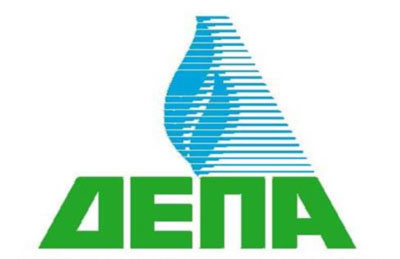by Spyros Paleoyannis* There is no doubt that during the last years, South Eastern Europe has been at the center of European and international interest, mainly because of the ongoing developments in the energy sector
There is no doubt that during the last years, South Eastern Europe has been at the center of European and international interest, mainly because of the ongoing developments in the energy sector.
Due to the proximity of the region to both traditional and alternative gas sources, nearly all gas transport routes to Europe, either under construction or under development, include many of the region’s countries, and thus there is a strong possibility for one or two of them to become new gas hubs and/or gas gateways to Europe in the future.
From a purely geographical point of view, Turkey and Greece certainly have an advantage in such a scenario.
South Eastern Europe, as a significant energy consuming part of Europe, faces a number of realities and challenges as regards its future needs for natural gas, mainly connected with the supply-demand equation, energy security and sustainability, but also its market characteristics and vulnerabilities.
The adjacent countries of South Eastern Europe recognize the benefits of developing a strong base of interconnected gas infrastructure, thus establishing a regional energy integration that actually contributes to the enforcement of a European energy market. Momentum is building for South Eastern Europe to move into that direction.
However, despite the efforts to create a secure and competitive energy market in the region, gas markets still remain national, with little integration, limited cross border gas flows and trade and with no gas-to-gas competition at all, mainly due to the lack of sufficient gas interconnectors, LNG and UGS facilities. To complete the picture, the region is facing declining local gas production and high dependence on a single gas importer.
The above mentioned vulnerabilities have become more obvious in the course of the last years due to the consecutive crises in Ukraine, during which (especially the one in 2009) the interruption of Russian gas deliveries was extremely painful for a number of South Eastern European countries.
Nevertheless, due to low energy demand per capita and poor gasification status in many countries in the region, in the Balkans there is the potential for an increase of gas consumption in the future and thus South Eastern Europe represents an attractive market for both traditional and alternative gas suppliers. This reality also explains the intense and very often geopolitical competition between powerful players in the international arena.
In this environment, there are two significant gas transport projects currently under construction with pivotal strategic importance to South Eastern Europe:
• The Southern Corridor, dedicated to transport Azeri Gas to Europe and
• The TurkStream/Greek Stream, designed to transport Russian gas via Greece to Europe
The Southern Corridor is fully backed by the EU and US, with the Americans strongly opposing the second pipeline (TurkStream), simply because it is going to transport Russian gas.
Geopolitical competition aimed at increasing influence and control over gas sources, transport routes and markets is, of course, understandable.
However, from a regional gas consumer point of view, this competition has only limited meaning. The real interest and concern of the countries in South Eastern Europe is for each country to have at least three supply sources and transport routes available in order to enjoy a diverse gas supply portfolio (especially if it includes both pipeline gas and LNG) and thus an acceptable level of energy security. Moreover, with more than one supply option, gas consumers in the region would enjoy lower gas prices due to gas-to- gas competition in the regional market.
Greece has a realistic national energy strategy which also involves a regional dimension. This strategy is aimed at enhancing the country’s and the region’s energy security by diversifying gas supply sources and also by supporting any possible gas transport route to or through South Eastern Europe, as well as any available gas flows that may reach the region.
* Mr. Spyros Paleoyannis is CEO of Public Gas Corporation of Greece (DEPA) SA, Member of Management Committee at International Group of Liquefied Natural Gas Importers (GIIGNL) and a Member of IENE’s BoD
(source: "Blue Fuel” – Gazprom Export Global Newsletter, June 2015/ Vol. 8/ Issue 3)




